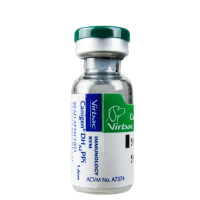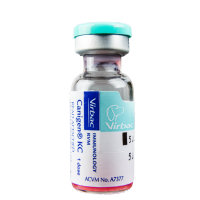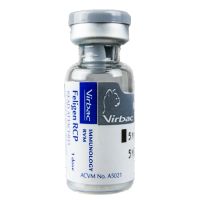
Dog and cat vaccination: what is it for? Consultation and vaccination reminders
As in humans, vaccination has two objectives:
- Protect your pet against infectious diseases. Vaccinating them will allow them to stay in good shape and healthy!
- Protect other animals and humans from the circulation of agents responsible for these diseases. Vaccination prevents the disease spreading from one animal to another.
For certain diseases which can infect both humans and animals, vaccinating animals also protects humans.
It is therefore an important medical responsibility. The larger the number of vaccinated animals, the lower the frequency of the disease in the population.
Reducing the vaccination rate risks the re-emergence of the disease!
A vaccine can protect against one or more diseases.
There are vaccines against viruses, bacteria and parasites.
Vaccination against these different diseases may be essential or optional.
It is your vet that will help you decide the appropriate vaccines for your pet based on your lifestyle, your location, the trips made.
To develop a strong, effective immunity, several injections are necessary in the first year.
Once an adult, regular booster vaccinations are necessary for the protection to remain effective throughout your pet’s life.
You must be careful to foloow the vaccination protocol recommended by your vet if you want your pet to be protected correctly.
If the protocol is not followed, it may be necessary to restart the vaccination protocol from the beginning!
Vaccination is useful for all dogs and cats; even those that live in the city, those that don’t go out or those that are getting old!
Your vet will discuss with you the types of vaccines you need to administer to your pet based on their location, lifestyle and age.
Thanks to vaccination over the last couple of decades, some serious diseases have become very rare.
Is this a reason to stop vaccinating?
No, on the contrary! It is essential to continue to vaccinate as without this, the disease may reappear. We must not forget that for dog and cat diseases, wild and feral animals are a reservoir where diseases are always present.
Maintaining your pet’s vaccination status, following a protocol you and your vet personalise to them, you can help prevent the spread or re-emergence of potentially life-threatening diseases.
Your vet will give you advice on the best vaccine protocol for your dog or cat.
Vaccination is done by the vet during a consultation.
During this, the vet will carry out a complete health check which will permit them to detect any possible problems that could make vaccination unsafe.
For a puppy or a kitten, this is an opportunity to check on and discuss growth, training, behaviour, nutrition, parasite control, medical or surgical desexing, and hygiene.
In an elderly pet, the consultation is an opportunity to make a senior assessment, including a blood test. It is therefore a privileged moment of exchange between the vet, the pet and the owner.



